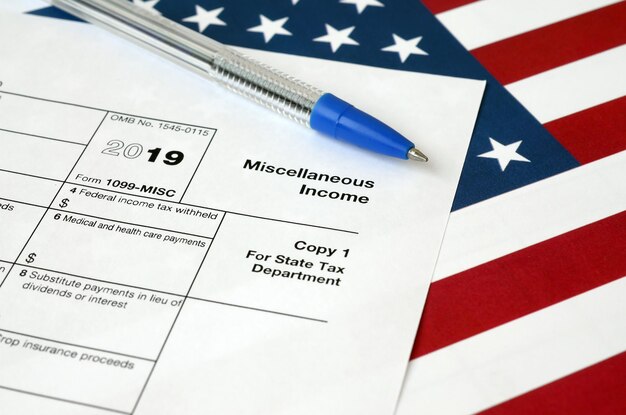Does Texas Have a State Income Tax? Everything You Need to Know
When considering where to live, work, or invest, one of the first financial questions that arises is about taxes. Taxes shape not just your immediate take-home pay but also the broader economic landscape. For those eyeing the Lone Star State, the question "Does Texas have a state income tax?" often leads the way in such assessments. Let's explore everything there is to know about Texas's tax structure, along with its implications and broader contexts.
The Big Answer: No State Income Tax in Texas
Texans enjoy one of the country's more significant financial perks: Texas does not impose a state income tax. For residents, this means more of their income stays in their pockets compared to states with higher tax burdens, affecting both individuals and businesses alike.
Why No State Income Tax?
Texas's lack of a state income tax is rooted in its history and economy:
- Constitutional Restriction: Texas's ban on personal income tax is enshrined in its state constitution. Any move to introduce such a tax would require voter approval, reflecting the state's historical stance against it.
- Business-Friendly Environment: Texas prides itself on maintaining a business-friendly environment. Without a state income tax, the state attracts various businesses and professionals from across the country.
- Alternative Revenue Streams: Texas relies on other forms of taxation and revenue collection, such as sales tax, property tax, and taxes on oil and other natural resources, to fund state needs.
Exploring Alternative Taxes in Texas
While Texas boasts no state income tax, residents and businesses are subject to other taxes to support governmental functions and community needs.
Sales Tax
Sales tax can significantly affect the cost of living and should be considered when evaluating the overall tax landscape:
- Rate: Texas imposes a state sales tax rate, and local jurisdictions can levy additional taxes. This means that sales tax varies and can influence where residents choose to shop or invest.
Property Tax
Property tax is another revenue source:
- Higher Rates: Texas is known for quite high property tax rates compared to national averages, which can impact homebuyers and real estate investors.
- Valuation: Since property tax is based on property value, areas experiencing rapid growth may see rising taxes.
Specialty Taxes and Fees
Texas also utilizes:
- Energy Taxes: Due to its robust energy sector, certain taxes are levied on oil and natural gas production.
- Franchise Tax: This tax applies to businesses operating in the state, known as the "margin tax", calculated based on a business's revenue.
Benefits of No State Income Tax
The absence of a state income tax contributes to Texas's allure, offering numerous advantages:
Competitive Cost of Living
- Keep More Earnings: Residents can retain a larger percentage of their income, enhancing their purchasing power.
- Incentive for High Earners: Particularly attractive for high-income professionals seeking more favorable financial conditions.
Economic Growth and Migration
- Business Magnet: Entrepreneurs and firms often relocate to Texas for its tax savings, creating more jobs.
- Population Influx: Favorable tax policies have contributed to Texas's significant population growth, bringing diverse talents and investments.
Considerations and Challenges
No state income tax is not without its challenges and considerations.
Reliance on Other Revenue
- Revenue Volatility: Over-reliance on sales or property taxes can lead to revenue instability, especially in economic downturns.
- Disparity in Tax Burden: Low-income families might feel the pressure from high sales taxes, even if they're not paying income taxes.
Infrastructure and Services
The balance between tax benefits and state-funded services:
- Budget Strains: Occasional discussions arise about funding shortages, especially in education and infrastructure, due to the tax framework.
- Federal Dependency: Texas at times relies on federal funds to fill the gaps.
Comparison with Other States
Understanding Texas's tax scenario requires comparing it with other states.
High Tax States
States with high taxes, like California or New York, often have substantial income taxes but offer different amenities and infrastructure enhancements.
Other No Income Tax States
Texas isn't alone; other states also forgo an income tax:
- Florida and Nevada: Like Texas, these states employ alternative revenue strategies, attracting businesses and retirees alike.
Summary Section: Key Takeaways and Practical Tips
🔍 Quick Takeaways:
- No State Income Tax: Texas doesn't tax personal income, allowing more net income.
- Funding through Alternatives: Rely on sales, property, and franchise taxes.
- Drawbacks and Balance: Benefits offset by potential service and infrastructure challenges.
💡 Consumer Tips:
- Budget for Property Tax: Homebuyers should be ready for potentially higher property taxes.
- Analyze Sales Tax Rates: Be mindful of varying local sales taxes when shopping or running businesses.
- Evaluate Comprehensive Cost of Living: Consider all taxes and regional costs for a holistic view.
Practical Implications: Who Benefits the Most?
Understanding who benefits most from Texas's tax setup can guide decisions:
- Retirees: Avoiding income tax can preserve retirement savings.
- High-Income Earners: Key demographic due to significant federal tax reductions.
- Entrepreneurs: No personal income tax and a favorable business climate enhance potential growth.
Embracing Texas's tax structure necessitates navigating its broader economic landscape. Consideration of these elements ensures informed decisions about living, investing, or starting a business in this dynamic state. While no state income tax is a significant draw, the comprehensive tax environment should guide one's financial strategy and long-term outlook.

Related Topics
- Are State Income Tax Refunds Taxable
- Are State Tax Refunds Taxable Income
- Can Business Deductions Reduce Your State Personal Income Tax
- Do I Have To File State Income Tax
- Do You Get State Income Tax Back
- Do You Pay Georgia State Income Tax On Qualified Dividends
- Do You Pay State Income Tax On Qualified Dividends
- Does Al Have State Income Tax
- Does Alabama Have a State Income Tax
- Does Alabama Have State Income Tax
